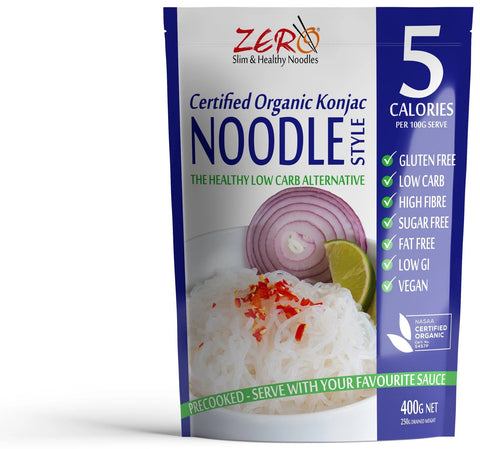Dangerous weight loss trends you must avoid
Most of us wouldn't mind losing a few pounds, especially after the pandemic and all of its restrictions. But there are so many dangerous diets out there that can cause real damage to our health and wellbeing, and these should be avoided at all costs. Here are some dangerous weight loss trends you should always avoid:
Single-color diets
Have you seen the "beige diet" or any other random mono-color diet described on social media? Avoid it at all costs. The idea is that these diets make your food so dull that you can't be bothered to keep overeating. However, the reality is that you will miss out on valuable nutrients and eventually binge and rebound.
Elimination diets
Humans have evolved to eat a combination of fats, proteins, and carbohydrates in an unprocessed and natural state. When you begin eliminating food without reason or medical supervision, you also risk eliminating vitamins and minerals and stimulating disordered eating. Here's an example. When macrobiotic diets became popular a few years ago, some followers eventually became diagnosed with pre-osteoporosis as their bones had demineralized. Elimination diets of any kind should only be taken with research and, ideally, medical supervision - perhaps to diagnose an allergy, for example.
Pills bought online

The internet is swimming in weight loss pills, drinks, packets, and supplements, and the vast majority are completely unregulated and potentially filled with dangerous ingredients that either leave you dehydrated or overstimulated. Excess caffeine can leave you jittery and stress your heart, while diuretics can become dangerous if overused because you become dehydrated. Other stimulants may be illegal, or they could interfere with other prescription drugs or simply make you ill. Just don't risk it.
Super-low-calorie diets

Extremely low-calorie diets of less than 800 calories a day, sometimes called starvation diets, are a quick route to eating disorders and rebound weight gain. When you significantly cut your calories over a prolonged period of time, your body desperately hangs on to its fat reserves and sends your hormones into overdrive, causing you to crave sugar and fast energy while your resting metabolism drops, making you feel cold and lethargic. Very low-calorie diets may be followed - with caution - for a short period of time to kickstart weight loss, but they will basically result in water weight loss only and potentially some muscle loss rather than fat burning. They are best avoided and replaced with a healthy, long-term approach to sustainable weight management.
A better way

It is possible to reach your target body composition by treating your body in a far kinder way, without starving it or denying yourself the foods that you love. The trick lies in making sensible decisions, using smart ingredients such as calorie-free Zero Noodles (made from natural konjac root), and employing strategies that work for your lifestyle. For example:
1. Determine your sensible target weight, take your measurements and use a tracking tool such as MyFitnessPal to record your progress. If you like having the support of a community, consider joining a weight loss group or online community. Identify your real goals beyond the scales. Do you want to be able to take part in more sports, feel more energized or feel better in your clothes, for example?
2. Find a diet plan that is healthy, balanced, and appeals to you, focusing on consuming natural ingredients, home cooking, and smart ingredients such as our Zero noodles for a low-calorie snack whenever you need it. Meal plan and prep; use plenty of vegetables, fruits and protein; add herbs and spices and experiment with healthy alternatives to your favorite dishes. For example, make a tomato pasta with low-cal konjac pasta rather than gluten-filled wheat pasta.
3. Get moving - but not in a punishing way. Walk, dance, garden, swim... do what you enjoy and have fun while doing it! It will nurture your body, health and self-confidence.
4. Track your results so you can see progress and feel motivated to keep going! Try to just weigh yourself once every two weeks and take measurements as you'll see the inches drop off even when you don't see the scales budge. Know that there will sometimes be setbacks, such as holiday periods, and plan for them - then carry on!
5. Have fun with it! Enjoy the process and focus on improving your health rather than slashing pounds, knowing that every positive step you take in your meal choices and lifestyle takes you toward your goals!